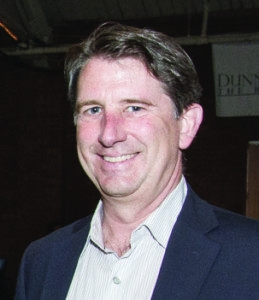 Each year, the heads of technology councils from across North America gather for a two-day meeting to share ideas and insights, learn about national trend, and discuss how we can continue to best serve members and play a leadership role in our respective ecosystems. Because we are so geographically dispersed, there is no competition among members. This results in free-flowing conversation and sharing of best practices. Here are a few highlights from this year’s meeting.
Each year, the heads of technology councils from across North America gather for a two-day meeting to share ideas and insights, learn about national trend, and discuss how we can continue to best serve members and play a leadership role in our respective ecosystems. Because we are so geographically dispersed, there is no competition among members. This results in free-flowing conversation and sharing of best practices. Here are a few highlights from this year’s meeting.
Location, location
We were in Boise, Idaho, and hosted by the Idaho Technology Council. Idaho’s tech growth has been strong in recent years due to its more affordable location just an hour’s flight east of Seattle. With nearly half the state’s population in the Greater Boise area, the region is booming and includes very tight university-tech relationships. It offers low-cost living and the second lowest energy costs in the country. In short, it has the makings for a true tech hub.
Friends and neighbors
Speaking of creating industry hubs, there was consensus that the Greater Boston area is now informally considered the second largest and most influential tech hub in the country. We in New Hampshire do benefit from this in several ways (note that when one enters in a city our town in Southern NH in their profile, it refers to us as “Greater Boston.”) While our location can be a double-edged sword, the proximity to a major metro hub is generally seen as a very valuable asset for intellectual and financial capital when looked at from a regional perspective.
Members care about advocacy information
There was much talk about member engagement, and two large councils in heavy tech hubs – Austin, Texas and Seattle, Washington – stated that they shifted their programming from being heavy on pure networking to more work on advocacy, workforce development and informational activities. The end result has been an increase in membership, and the even more important metric – an increase in the percent of members that renew year over year.
Common issues
Last, workforce development continues to be the top concern as tech workers are in demand across the US and Canada. Cybersecurity skills were cited as one of the greatest needs and because the field is evolving so quickly, four-year degrees are challenged to keep curriculum as current as possible, and two-year colleges have become a popular option for training in this area.
Working together
Computer science is another key high growth area and we were honored to head from code.org founder Hadi Partovi whose organization is helping states and municipalities navigate the challenges of building and launching computer science programs in school districts. This is a fledgling effort in New Hampshire through our CS4NH working group and we’re looking to see how we might tap the code.org resources here as a result of the connection made in Boise.
Like any conference one attends, you hope for a few nuggets that demonstrate value. Visiting Boise did not disappoint.
